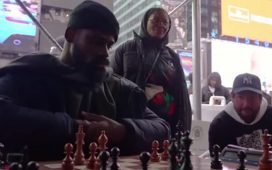In BROKE MILLENNIAL TAKES ON INVESTING: A Beginner’s Guide to Leveling Up Your Money (TarcherPerigee, paper, $15), Erin Lowry says her book is for rookies, and it is. She breaks down the who/what/when, explains how it’s (almost) never too early to start and shows you when it’s O.K. to begin. (Hint: It’s fine to have school loans, but don’t start thinking about investing until you have a three-to-six-month expense cushion and have paid off your credit card debt.) She offers clear discussions of everything from individual stock picking to impact investing to the benefits of investing even when you’re risk averse.
I’d argue that this book isn’t just for millennials. Those of us who were lucky enough to have had investments set up by our families or financial professionals don’t necessarily understand what we’re doing either. Before I, an old person, could even read the book, I needed to head to the chapter that defined investing terms. This made me realize that for 20 years, every time my portfolio manager tried to educate me, burbling on about expense ratios or R.O.I.s, I would go to my happy place, which either involved a golden retriever at the beach or me and Gerard Butler naked. Either way, it didn’t improve my investing literacy. “Broke Millennial” did.
All this time spent reading books on adulting can be harrowing for a worried parent who isn’t entirely sold on the survival skills of her teenage son. I needed some reassurance, and a sense of “this too shall pass.” Luckily, I found it with a king penguin, a hyena, a humpback whale and a wolf.
In WILDHOOD: The Epic Journey From Adolescence to Adulthood in Humans and Other Animals (Scribner, $28), Barbara Natterson-Horowitz and Kathryn Bowers, whose previous book was “Zoobiquity,” follow this cast of characters as they face the trials of making it to adulthood in their savage and competitive worlds. You don’t even need to anthropomorphize to find some of the similarities between animal and human teenagers uncanny, and the lessons they have to learn remarkably similar. Take, for instance, the need to recruit adult attention in order to succeed. Natterson-Horotize and Bowers tell a story about a low-status adolescent hyena getting the highest-status adult to protect and nurture him — in a world where a high-status hyena (or, as I think of her, the Lori Loughlin of hyenas) would normally make sure her own offspring win out, even if they don’t deserve to. Isn’t this the skill we all want for our kids?
There’s one adulting lesson here that I particularly cherish. Among Spanish imperial eagles, if a fledgling is hanging around the nest too long, formerly nurturing parents will start with tiny acts of aggression (decreased feeding, ignoring their begging) and end up divebombing their offspring — digging their talons into their soft flesh and more or less forcing them to get the hell out. Zoologists have come up with a very scientific phrase for this: “parental meanness.” The eagles who practice parental meanness apparently raise more successful fledglings than their more indulgent counterparts.
Message received.






